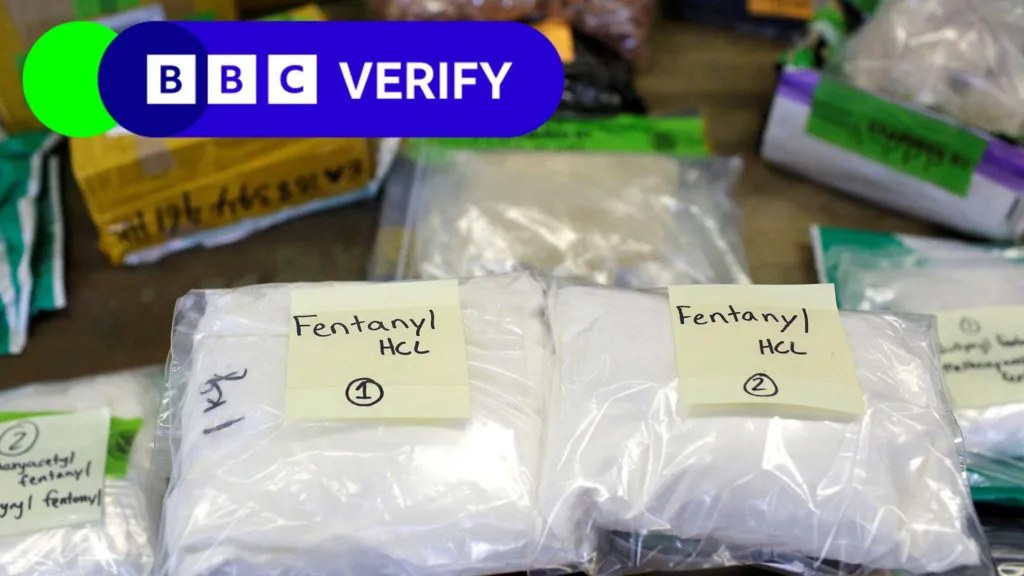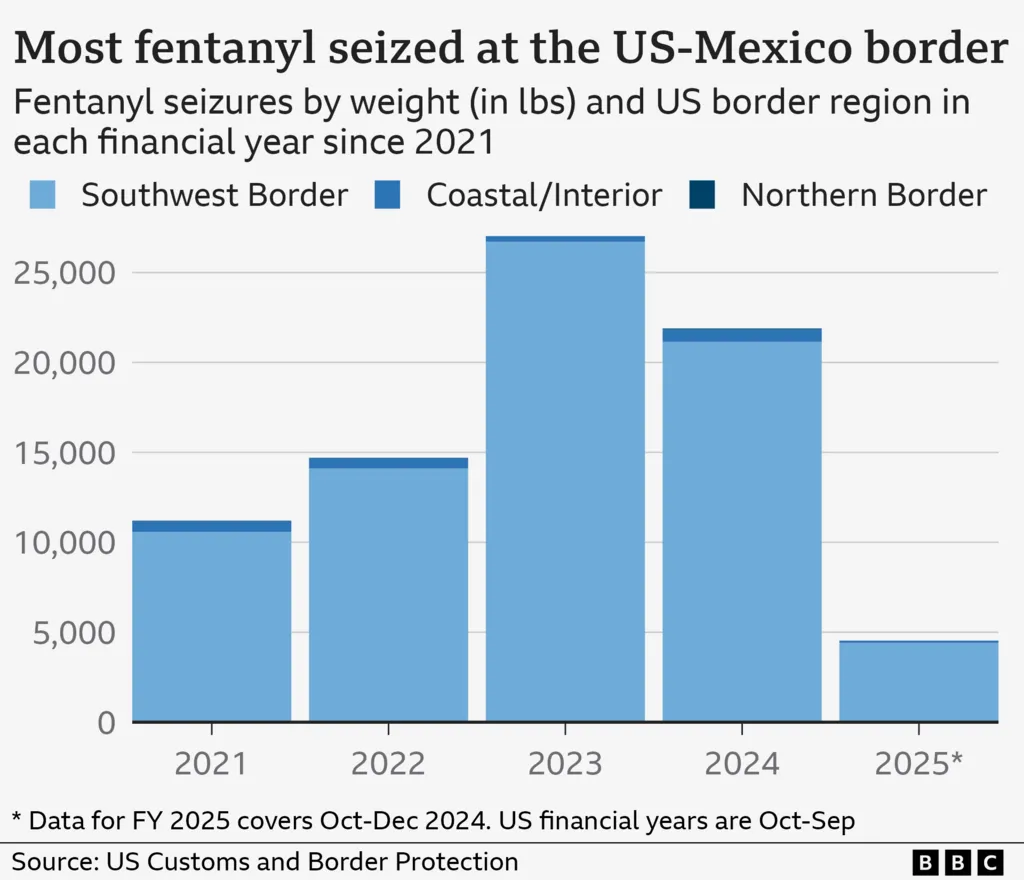The Scourge of Fentanyl
 |
| U.S. and Chinese officials before a meeting at the Diaoyutai State Guesthouse in Beijing, Tuesday, Jan. 30, 2024, to launch the U.S.-China Counternarcotics Working Group. (Ng Han Guan/Pool via REUTERS |
"Fentanyl is an issue for the U.S.""The U.S. needs to view and solve its own fentanyl issue in an objective and rational way instead of threatening other countries with arbitrary tariff hikes."Chinese Foreign Ministry"As long as there is a strong consumer market in the U.S., it is unfair to blame China for producing these substances.""China has consistently enforced strict measures to combat the fentanyl issue.""However, if Trump continues to use tariffs to pressure China, Beijing may decide that it is unwilling to cooperate further."Wang Towei, international affairs expert, Renmin University, Beijing"It's going to be a very big national mobilization to identify where [the manufacturers] are.""[Companies] can just quickly change the name and restart the business elsewhere."Zongyuan Zoe Liu, senior fellow, Council on Foreign Relations"The truth is that if Xi Jinping and the CCP wanted to end the flow of precursors and synthetic opioids to the U.S., they can most certainly do so."John Coyne, director of national security programs, Australian Strategic Policy Institute

For
reasons known only to himself, newly-returned-to-the-Presidency Donald
J. Trump decided to economically thrash Mexico and Canada through the
imposition of onerous tariffs, citing among other issues that propel him
to take these measures, leaky borders through which the deadly opioid
fentanyl finds its way across borders into the U.S. For Mr. Trump,
outraged over illegal migrants flowing into the U.S. across borders and
trade imbalances, an across-the-board 25% tariff on goods and materials
seemed reasonable.
Three
nations sharing a continent, all three considered to be friendly to one
another, fellow democracies with shared values, yet two of the three
are receiving punishing, unfriendly notices of punitive tariffs that
will have the effect of spiralling them into a recession through
diminishing their GDP with a barrier threatened across borders. Yet
China, a restrictive autocracy at best, and a trade-threatening colossus
that is challenging the U.S. in influence, trade and power now faces a
10 percent tariff.
Imposed
for similar reasons to those placed upon America's near neighbours and
once again the destructive power of fentanyl is cited. This scolding of
China and holding it accountable to the U.S. for waylaying promises to
put a halt to "poisonous fentanyl and other drugs from flowing into our country" while accusing the CCP of having "subsidized and otherwise incentivized" the shipment of fentanyl and other chemicals to the U.S.
In
response, Beijing's Commerce Ministry on Sunday promised
countermeasures to address the tariffs along with its intention to file a
lawsuit with the World Trade Organization. Beijing took no notice it
seems, of how lightly it came off in Mr. Trump's allocation of 10%
tariffs as opposed to the 25% imposed on friendly nations of the U.S.,
criticizing the U.S. President's actions as lacking rationale,
emphasizing it is not China that is responsible for America's health
issues.
Prescription
opioids like OxyContin, introduced in the 1990s as painkillers led to
fentanyl, an artificial opioid, flooding the market. Chinese chemical
manufacturers produced fentanyl which became the primary source of a new
opioid trafficked in the United States. Following pressure from the
U.S., Beijing agreed to designate fentanyl as a controlled substance
policing fentanyl shipments to the U.S -- which merely slowed down the
global supply chain.
China
remained the major source of precursors of fentanyl, chemicals which
were designed to produce the drug, shipped abroad to countries like
Mexico where criminal gangs assembled the drugs, and where at the
present, a booming online marketplace facilitates the trade in fentanyl,
leading to overdose deaths from the potent, deadly drugs. In 2023,
China's National Narcotics Control Commission warned companies against
the sale of fentanyl precursors.
How
increased tariffs imposed on Chinese imported trade goods will have any
effect on staunching the flow of drug precursors from China, remains
unclear. Zongyuan Zoe Liu of the Council on Foreign Relations, points
out that China's sprawling chemicals industry includes a vast number of
small companies involved in both illegal and legal operations.
Counter-narcotics
experts feel Beijing could crack down aggressively on precursor
chemical makers in reflection of its expansive surveillance and law
enforcement apparatus. The issue for Beijing, on the other hand, seems
not to be of a sufficiently urgent nature to galvanize it into action to
disrupt a booming Chinese industry.

Labels: Artificial Opioids, China, Fentanyl, Precursor Chemicals, U.S. Tariff Imposition
0 Comments:
Post a Comment
<< Home